The Church of England's General Synod opened its debate on female bishops with a succession of former opponents announcing that they would accept the legislation even if they disagreed with it.
The early signs were that the historic legislation would be passed, although supporters remained nervous.
Two lay members whose resistance helped scupper an earlier move in 2012 said they would vote for the new legislation.
Philip Giddings, the conservative evangelical who chairs the house of laity, said he was satisfied the new, simplified legislation would be tolerable for his side.
Tom Sutcliffe, a liberal who had nonetheless voted against female bishops, said the new legislation was a huge improvement on the last.
But Jane Patterson, a conservative evangelical from Sheffield, told the synod she would continue to oppose the legislation. Her faction was being marginalised, she claimed; and opinion in the diocese of Sheffield was not 90% in favour of women bishops, as it appears to be in the rest of the church.
A senior Church of England bishop appealed to traditionalists not to defy the overwhelming majority of ordinary churchgoers by voting down the legislation.
The bishop of Rochester, the Right Rev James Langstaff, warned the governing body of the consequences for the morale of the Church of England if the plan to introduce female bishops was defeated for the second time.
"The Church of England has spoken very clearly through the voting of the diocesan synods and we today have, I believe, a responsibility to show that we have listened," he said.
"Wherever each of us stands on the spectrum of views, I want to suggest today that we have a responsibility to be guided, yes, by what we ourselves think, but also by what we assess to be the settled view of the great majority within the Church of England."
In his address at York University, Langstaff said he respected the views of opponents of female bishops who felt they had no option but to vote against the legislation. But he hoped other opponents might choose to abstain from the vote.
His remarks were made as the Church of England faced a close vote on giving final approval for the legislation, which requires a two-thirds majority in each of the houses of bishops, clergy and laity.
The plan collapsed in November 2012 after it was derailed by just six votes cast by lay members, causing shock and bitter recriminations within the Church of England and prompting threats of an intervention by parliament.
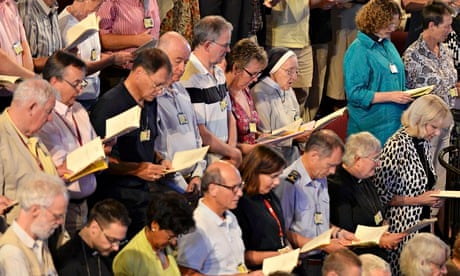
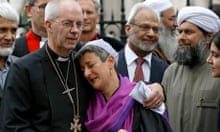



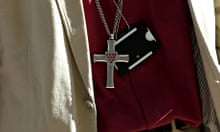
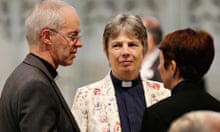
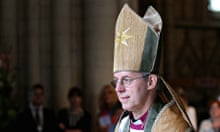
Comments (…)
Sign in or create your Guardian account to join the discussion